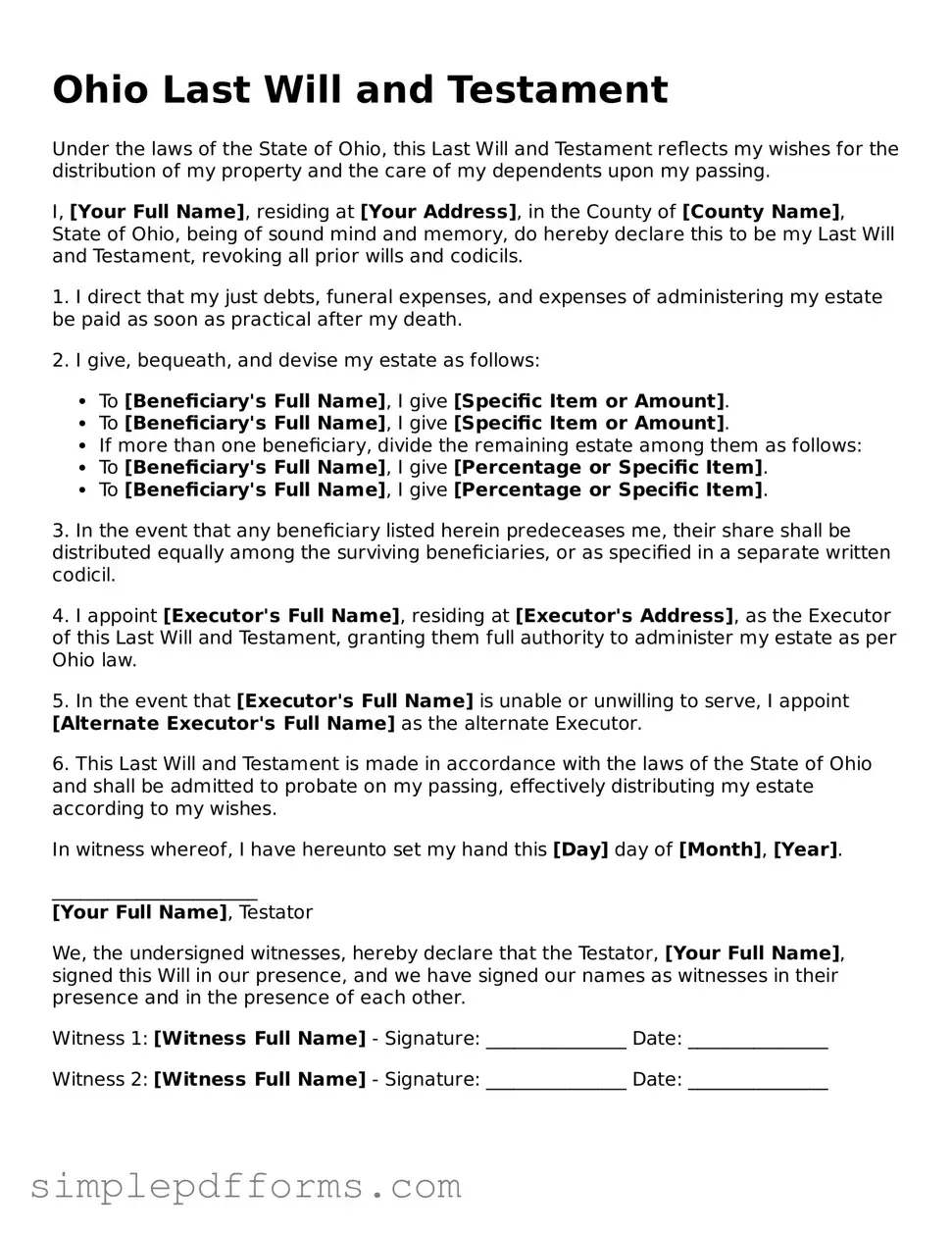Attorney-Verified Last Will and Testament Document for Ohio State
The Ohio Last Will and Testament form is a legal document that outlines how a person's assets and affairs should be handled after their death. This form ensures that your wishes are clearly communicated and legally recognized. Understanding its importance can help you secure peace of mind for yourself and your loved ones.
Open Last Will and Testament Editor Now

Attorney-Verified Last Will and Testament Document for Ohio State
Open Last Will and Testament Editor Now

Open Last Will and Testament Editor Now
or
Get Last Will and Testament PDF Form
Your form is waiting for completion
Complete Last Will and Testament online in minutes with ease.